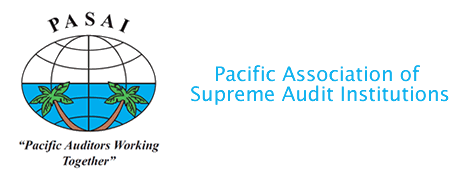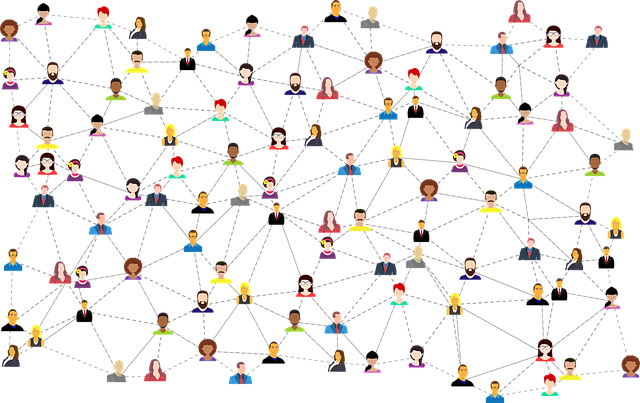General Information CBC Annual Meeting 2015
Meeting dates and venue
The CBC annual meeting will take place in Stockholm, Sweden, on 8-10 September, 2015. The venue for the meeting is only a short walk from the hotel, please see below:
Finlandshuset Konferens
Snickarbacken 4
111 83 Stockholm, Sweden.
Telephone: +46-8-54521204
E-mail: finlandshuset@fazer.com
Website: http://finlandshuset.se
Registration and access to meeting
Meeting registration will be available from 08.15-08.45 on 8 September at the entrance of the conference venue Finlandshuset. Compliance with this time limit will assure efficient processing of the information and the proper issuance of meeting badges. CBC meeting badges should be worn at all times and will be required for entry to all venues and meeting areas.
Accomodation
The Swedish National Audit Office (Riksrevisionen) has negotiated a special rate at Hotel Kung Carl for all CBC meeting participants for the nights of 7-11 September, 1606 SEK pp/night. Please be aware that this rate will expire on 1 July. All participants are responsible for making their own reservations directly with the hotel, please note that the reservations CANNOT BE MADE ON-LINE. Use e-mail, fax or telephone for your room bookings:
Tel: 08-463 50 00 Fax: 08-463 50 50 E-mail: info@hotellkungcarl.se Kindly submit the booking reference number: 685183.
For questions please contact Ms Kerstin Abrahamsson: Kerstin.abrahamsson@riksrevisionen.se.
Hotel Kung Karl
Birger Jarlsgatan 21 111 45 Stockholm Telephone: +46-8-463 50 00 E-mail: info@hotellkungcarl.se Website: http://www.hotellkungcarl.se
Transportation
It is easy and safe to move around in Stockholm, this also includes public transport. The Swedish National Audit Office will not provide transport to or from the airport, why all CBC meeting participants will be asked to make their own arrangements. One of the following means of transport is recommended:
Arlanda Express Train
The Arlanda Express takes you from the airport to the Central Station in 20 minutes. From there you reach the hotel via a ten minute taxi journey, or the undergroud train to Östermalmstorg station.
Fares for Arlanda Express Train:
One-way ticket: SEK 260 (approx. EUR 30, USD 38)
Return ticket: SEK 490 (approx. EUR 55, USD 70)
For more information:
http://www.arlandaexpress.com/start.aspx
Airport Bus (Flygbussarna)
Takes a little longer (40 minutes) than the train, but is comfortable and fairly priced. Fares for the airport bus:
One-way ticket: 99 SEK (approx. 10 EUR, 11 USD)
Return ticket: 198 SEK (approx. EUR 21, 23 USD)
Taxi
By taxi the journey from Arlanda Airport to the hotel takes about 40 minutes, depending on the traffic situation at time of arrival. Recommended taxi companies and approximate fares:
Taxi Stockholm: SEK 520 (approx. EUR 56, USD 61)
Taxi 020: SEK 460 (approx. EUR 49, USD 54)
Make sure you get a fixed price before starting your journey!
Dress code
The CBC Annual meeting has a smart casual dress code. However, for dinner occasions, smart casual or jacket and tie is recommended, and a jacket or shawl can be nice as evenings can be chilly.
Checklist – to bring
Visa, valid passport, insurance letter and formal invitation in case of questions upon arrival in Schengen or Arlanda Airport
Adapters for charging of all electronic devices (220V)
Laptop – no printed documents will be available at the meeting venue
Important medicines, as most medicine is on doctor’s prescription in Sweden
Umbrella and light jacket or cardigan for rain/evening use
Comfortable walking shoes
Contact
For inquiries related to logistical issues, please contact:
Ms Kerstin Abrahamsson +46-73-4452283 (Kerstin.abrahamsson@riksrevisionen.se),
Ms Anki Turesson +46-73-4452089 (anki.turesson@riksrevisionen.se) or
Ms Camilla Brodén +46-73-4452358 (Camilla.broden@riksrevisionen.se)
For information on thematic issues, please contact:
The CBC Secretariat (secretariat@intosaicbc.org)
Sweden – A short introduction
Sweden is a sparsely populated country, characterized by its long coastline, extensive forests and numerous lakes. It is one of the world’s northernmost countries. In terms of surface area it is comparable to Spain, Thailand or the American state of California. Sweden’s borders have been unchanged since 1905 and the country has not been at war since 1814.
Extreme contrasts
Sweden experiences extreme contrasts between its long summer days and equally long winter nights. In the summer, the sun stays in the sky around the clock in the parts of Sweden north of the Arctic Circle, but even as far south as Stockholm (59°N) the June nights have only a few hours of semi-darkness. Evenings and mornings are light, why eye-blinds are recommended making it easier to sleep. In September it is already starting to get darker again, and towards the end of December the sun sets at about 3.00 pm.
Climate
Considering its geographic location, Sweden enjoys a favorable climate. This is mainly thanks to the Gulf Stream, a warm ocean current that flows off Norway’s west coast. With its variety of landscapes and beautiful scenery, Sweden has everything from bears and wolves in the north to roe deer and wild boar in the south. The country also has a wealth of flora and aquatic life, which contribute to its biological diversity.
The weather in early autumn such as September hopefully means that summer still lingers, with temperatures around 20 degrees Celsius during the day, but chilly evenings and mornings, where a cardigan or light jacket is advisable.
Facts and Figures
Capital: Stockholm
Population: 9.58 million, about 0.13 per cent of the world’s population.
Currency: 100 Swedish kronor (SEK) = 144 ZAR = 10.70 EUR or 12 USD (in late May, but please double check prior to arrival.) Religion: The Church of Sweden is Evangelical Lutheran. There are also many other religions and denominations.
Language: Swedish.
Form of government: Constitutional monarchy, with parliamentary democracy.
Parliament: Riksdagen, with 349 members in a single chamber. In Sweden, general elections are held every four years, with the last one held in September 2014. Around 7 million people are entitled to vote and thereby influence which political party will represent them in the Riksdag (the Swedish Parliament), county councils and municipalities.
Education: Nine years of compulsory schooling, but most pupils continue to the three-year upper secondary school. Around one-third go on to higher education at universities and colleges throughout Sweden.
Working hours: Standard work week is 40 hours, minimum paid vacation is 5 weeks
Area: 450,294 sq km, the third-largest country in Western Europe after France and Spain.
Calling code: +46
Time zone: GMT +1
Most important export goods: Machinery and transport equipment, wood and paper products, chemicals and plastic products, industrial machinery, electronics and telecommunications equipment, minerals, road vehicles. Most important imported goods: Machinery and transport equipment, chemicals and plastic and rubber products, electronics and telecommunications equipment, energy products, industrial machinery, road vehicles, minerals, foodstuffs.
Economy and equality
The Swedish society has been associated with a “middle way” between socialism and capitalism, famous for its welfare state, high taxes, and peaceful labor relations. In recent years, Sweden has received more attention for successfully handling its economy in a global economic and financial crisis. The fundament of the Swedish society is an economy that is open, export-based, and highly efficient. In a long-term perspective Sweden is characterized by steady growth, political stability, transparent institutions, technological adaptability, flexible labor markets, open economies and high levels of education. All these factors place Sweden at the top of international ranking lists both in terms of economic clout and quality of life.
A less gender-equal society is less economically beneficial from a societal perspective. It is simply a waste not to take advantage of the education and skills of the whole population. Internationally, Swedish gender equality is still a utopian ideal for large parts of the world. According to recent figures from the World Economic Forum, Sweden ranked fourth most equal among the 136 countries compared. Most fathers stay at home with their children for about six months. However, still 78% of parental leave benefits are claimed by women and three times more women opt to work part-time when their children are small.
Stockholm – the Capital of Sweden
Stockholm, one of the world’s most beautiful capital cities, is built on 14 islands connected by 57 bridges. The beautiful buildings, the greenery, the fresh air and the proximity to the water are distinctive features of the city. Stockholm with its 750-year history and rich cultural life offers a wide range of museums and attractions, most of which are within walking distance from the hotel and there are good opportunities to get to experience a lot in a short time.
Currency
100 Swedish kronor (SEK) = 10.70 EUR or 12 USD.
VISA/Mastercard are accepted everywhere. In Sweden credit cards can be used also for very small transactions. Should you wish to make currency exchange, this can preferably be done at a Forex desk or SEB bank counter at Arlanda Airport or the Central Station. You will also find cash machines conveniently located throughout the city.
Food
You can find all kinds of food in Stockholm, from the national dish Swedish meatballs to a great variety of international cuisine and many restaurants in different price ranges. The Hotel Kung Karl is right in the city centre of Stockholm and many restaurants are right around the corner, as is the water front and the park Humlegården (for jogging or strolls). Alcohol is expensive in Sweden, and for private consumption can only be found in special stores called Systembolaget.
Tipping
All service charges are included in the price in Sweden, but should you find the service and total experience of your evening very good, a 10% tipping is always welcome. Tipping at lunch time is rare, unless you frequent a very fine restaurant, and in taxis tipping is optional.
Dietary restrictions
Dietary restrictions due to religion, culture, allergies or other reasons, are common in Sweden, and most restaurants are used to special requests. However, please do remember to let us know if you have dietary restrictions, so that we can give notice to the conference venue.
News

Blog: Four Essential Skills for Auditors in the “Next Normal” Era
The role of auditors is rapidly evolving due to technological advancements, regulatory changes, and global challenges like the COVID-19 pandemic. As we enter the "Next Normal" era, auditors need to be equipped with key skills to effectively operate in this complex...

Upcoming AFROSAI-E workshops in July
2-5 July: Annual Extractive Industries workshop in Dar es Salaam Over the years, our annual Extractive Industries Workshop has proven to be an invaluable gathering of representatives from member SAIs, industry experts, and practitioners from various institutions. This...

PASAI blog: Firefighting, saving lives and the value of Performance Audit
Read and be inspired by this blog by By Mike Scott, Director Performance Audit, PASAI: "...This got me thinking about the value of performance audit and how being a performance auditor isn’t as different as it might seem to being a firefighter. Being capable, timely...

Blog: How a culture’s ‘power distance’ affects auditing
By Luke Eaton, Communications Advisor, PASAI Across the Pacific region the power distance dimension of culture varies. This refers to the relationships between people perceived to have different ‘statuses.’ In places with a low power distance, interactions are usually...

16-20 September intense meeting week hosted by SAI Romania
Building Effective, Accountable and Transparent Institutions for the Public Good There will be a busy meeting week in Bucharest, Romania, on 16-20 September. The meetings of IDC (INTOSAI-Development Cooperation), PFAC (INTOSAI Policy, Finance and Administration...

AFROSAI-E Bulletin no. 1, 2024
The Office of the Auditor General of Uganda played a crucial role in hosting the 20th AFROSAI-E Governing Board Meeting and 2024 Strategic Review in the beginning of May. The event was attended by over 130 delegates, including the Auditors General from member SAIs,...

PASAIs strategy 2024-2034: Investing in Integrity
While every Congress is a major event on the PASAI calendar, this year marks a significant milestone with the adoption of the new strategy for 2024–2034. The strategy is the result of more than a year’s collective efforts. Please read the summarizing blog of Sarah...

First meeting of the Task force on Citizen Participation (TFCP)
Sharing experiences, results and perspectives on citizen participation and civil society engagement by Nelson Shack Yalta, Comptroller General of the Republic of Peru and Chair of the Task Force on Citizen Participation and Civil Society Engagement...

PASAI: new HR guide now available
A new guide is now available to help Pacific Island SAIs navigate human resource management (HRM), providing the tools to deal with the challenges of attracting, developing, rewarding and retaining staff, based on global knowhow and regional experience. Find...

The future of flexible working in Supreme Audit Institutions
In recent years the CBC has focused on human resource management issues, recognizing that staff are the most crucial asset of a Supreme Audit Institution (SAI). Human resource management encompasses various dimensions aimed at optimizing staff performance and ensuring...
